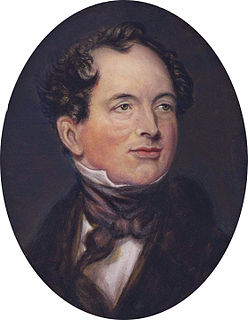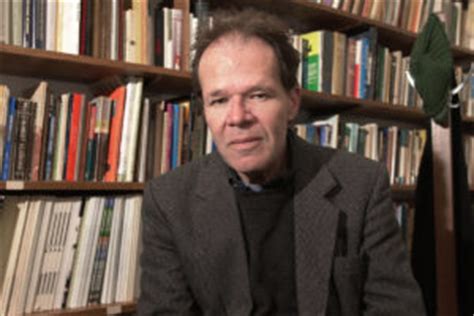A Quote by Gilbert K. Chesterton
One of the deepest and strangest of all human moods is the mood which will suddenly strike us perhaps in a garden at night, or deep in sloping meadows, the feeling that every flower and leaf has just uttered something stupendously direct and important, and that we have by a prodigy of imbecility not heard or understood it. There is a certain poetic value, and that a genuine one, in this sense of having missed the full meaning of things. There is beauty, not only in wisdom, but in this dazed and dramatic ignorance.
Quote Topics
Beauty
Certain
Dazed
Deep
Deepest
Direct
Dramatic
Every
Feeling
Flower
Full
Garden
Genuine
Having
Heard
Human
Ignorance
Imbecility
Important
Just
Leaf
Meadows
Meaning
Meaning Of
Missed
Mood
Moods
Night
Only
Perhaps
Poetic
Sense
Something
Strangest
Strike
Suddenly
Things
Understood
Us
Value
Which
Will
Wisdom
Related Quotes
The rich, sweet smell of the hayricks rose to his chamber window; the hundred perfumes of the little flower-garden beneath scented the air around; the deep-green meadows shone in the morning dew that glistened on every leaf as it trembled in the gentle air: and the birds sang as if every sparkling drop were a fountain of inspiration to them.
let us thank God for having made us this gift of death, so that life is to have meaning; of night, that day is to have meaning; silence, that speech is to have meaning; illness, that health is to have meaning; war, that peace is to have meaning. Let us give thanks to Him for having given us weariness and pain, so that rest and joy are to have meaning. Let us give thanks to him, whose wisdom is infinite.
The truly monumental can only come about by means of the most exact and refined relation between parts. Since each thing carries both a meaning of its own and an associated meaning in relation to something else - its essential value is relative. We speak of the mood we experience when looking at a landscape. This mood results from the relation of certain things rather than from their separate actualities. This is because objects do not in themselves possess the total effect they give when interrelated.
Perhaps I am a man of exceptional moods. I do not know how far my experience is common. At times I suffer from the strangest sense of detachment from myself and the world about me; I seem to watch it all from the outside, from somewhere inconceivably remote, out of time, out of space, out of the stress and tragedy of it all. This feeling was very strong upon me that night. Here was another side to my dream.
Living Things. The garden can be as unlimited a resource as you want it to be. It's an escape from everything if you just want a break. It is something to do with living things, not a static piece that you put there and look at but something that changes every day. You're committed to it. If you don't look after it, it dies on you. And if you do look after it, it will give you rewards - pleasure, and a feeling of achievement. There's a sense of responsibility developed in a garden.
Let me define a garden as the meeting of raw nature and the human imagination in which both seek the fulfillment of their beauty. Every sign indicates that nature wants us and wishes for collaboration with us, just as we long for nature to be fulfilled in us. If our original state was to live in a garden, as Adam and Eve did, then a garden signals our absolute origins as well as our condition of eternity, while life outside the garden is time and temporality.
But by far the greatest hindrance and aberration of the human understanding proceeds from the dullness, incompetency, and deceptions of the senses; in that things which strike the sense outweigh things which do not immediately strike it, though they be more important. Hence it is that speculation commonly ceases where sight ceases; insomuch that of things invisible there is little or no observation.
Perhaps the more benign and poetic sense of God is established when we are babies in the moments of primal joy we might call 'the epiphanies of infancy' - the sensation of being blissfully held and feeling complete and at one with everything - yet having no words or no need to say it but instead to just assimilate the feeling.
I ask but one thing of you, only one, That always you will be my dream of you; That never shall I wake to find untrue All this I have believed and rested on, Forever vanished, like a vision gone Out into the night. Alas, how few There are who strike in us a chord we knew Existed, but so seldom heard its tone We tremble at the half-forgotten sound. The world is full of rude awakenings And heaven-born castles shattered to the ground, Yet still our human longing vainly clings To a belief in beauty through all wrongs. O stay your hand, and leave my heart its songs!
Religion, mysticism and magic all spring from the same basic 'feeling' about the universe: a sudden feeling of meaning, which human beings sometimes 'pick up' accidentally, as your radio might pick up some unknown station. Poets feel that we are cut off from meaning by a thick, lead wall, and that sometimes for no reason we can understand the wall seems to vanish and we are suddenly overwhelmed with a sense of the infinite interestingness of things.
Music, feelings of happiness, mythology, faces worn by time, certain twilights and certain places, want to tell us something, or they told us something that we should not have missed, or they are about to tell us something; this imminence of a revelation that is not produced is, perhaps, the esthetic event.





































